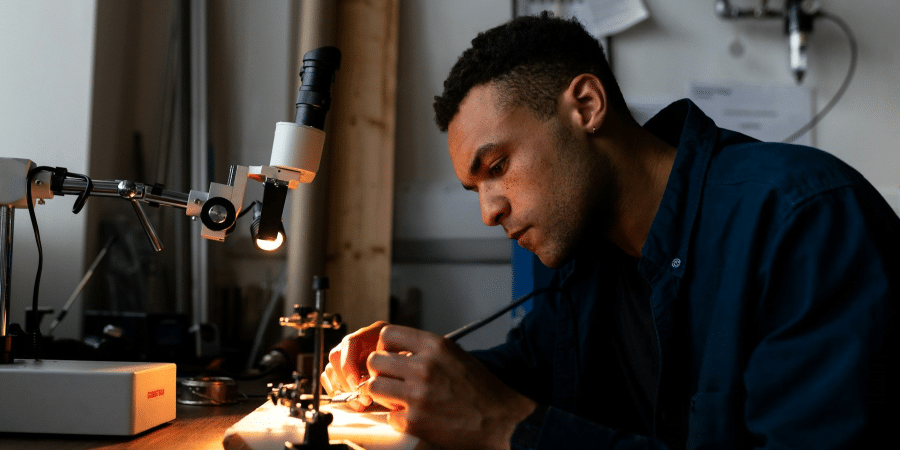Dr. Richard James Jones is a general practitioner originally from Great Britain, but currently practicing medicine in Dubai. As the son of a surgeon and a nurse, he knew from an early age that he wanted to follow in his parents’ footsteps and pursue medicine as a career.
Richard earned a Bachelor of Science in Physiology from the University of Wales College in Cardiff in 1995, before continuing on to earn his Bachelor of Medicine and Surgery in 2000. He continued his education from there, earning a postgraduate degree in Sports Medicine before taking on roles in the United Kingdom, New Zealand, and finally in Dubai, where he currently works.
In Dubai, Dr. Richard Jones practices general medicine, but his professional interests extend much further, and include the disciplines of sports injuries and rehabilitation, men’s health, as well as mental health. He is a believer in adopting an evidence-based approach to medicine, and strongly advocates for preventative measures and care for all of his patients. He believes that every patient can benefit from working together with their primary doctor because fostering that relationship enables more effective, informed, and specialized patient care.
Outside of work, Dr. Richard Jones of Dubai values any time he gets to spend with his family. He also enjoys travel, often returning to London, UK to reunite with his friends and loved ones.
Why did you decide to go into general practice medicine?
I knew as a young child I wanted to go into medicine. My father was a surgeon and my mother a nurse. It was a field that felt like a natural fit for me. Initially, my training was in surgery. During that time, though, I missed patient interaction. My experience in surgery helped me to see that becoming a family doctor, otherwise known as a general practitioner, was a better fit.
What trends in your industry excite you?
Having a more general practitioner-centric construction to medicine, as is the case in several countries, is a real benefit to the patient. It helps to ensure that one person knows what the patient needs no matter where and to whom they are being sent. That’s a trend that excites me a great deal.
What would you tell others looking to get into your industry?
I would tell them to be dedicated to medicine and know why you want to be dedicated. Keep that ‘why’ in the forefront of your mind through your training and throughout your career. You’ll find the investment of time, money, and emotion will truly pay off.
What is one thing you would change in your industry today if you could?
I would like to see all patients have better access to doctors. Many of my patients have a direct line to me when needed. It’s far better for the patient not to worry until morning over a question that can be answered in a few minutes.
If you could change one thing you did in the beginning of your career, what would it be?
I would change the time that I invested in surgical training. Granted, I don’t regret going into surgery in the least. I learned quite a bit about whole patient care through my time in it. It’s something I would love to be able to share more broadly, but it delayed me from getting into what I really love doing. I love interacting with the patients—really getting to know them and having them get to know me. It builds trust and empowers the patients. I love knowing that when they leave my office, the worry they came in with was addressed and a plan has been put in place. They feel better and thus, I feel better.
Who has been a role model to you and why?
Peter Beck was an inspirational part of my medical training. He really took the time to educate those around him. I consider him quite an understated genius with his approach to medicine and training. We’ve recently lost him, but truly, much of how I approach patients and patient care comes from the lessons he gave and the example he set.
How do you maintain a work life balance?
Through constant reassessment. Although that’s not really something to be done daily, but maybe weekly, instead. Reassessment is something we should be doing with our jobs, no matter the position. As a doctor, you can stay in the office all night, because there’s always something to do and some problem to solve. No day is truly and completely finished by the time you retire for the evening. You have to learn to let that go so you can enjoy your time with your family.
What is one piece of advice that you have never forgotten?
Be honest and own whatever you do. Many doctors have created more problems for themselves by not accepting responsibility or brushing over mistakes. But the fact is that we’re human. No one is going to be perfect in anything. It’s important that we own what we are doing and do our best to make things right. It doesn’t matter if the issue is great or small. That’s something I learned from Dr. Beck. He was completely correct about that, too.
What does success look like for you?
If the doctor is satisfied and the patient is happy, then I would consider that a success. Medicine is a partnership between the patient and their doctor. It’s not a one sided process or plan. It’s something we are all a part of and must be happy with.








